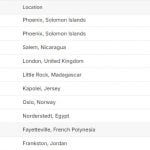Exploring Shopware: Scale Units in Shopware 6 Settings

Flexibility in every aspect of your e-commerce website simplifies not only your daily routine but also the shopping experience of your prospects. For instance, you want to apply different scale units, such as bottles, packs of bottles, and barrels, to your products. If your e-commerce platform doesn’t let you do that, it is necessary to create numerous different products with similar characteristics except for the scale units. As for Shopware 6, it lets you create custom scale units for your products. Thus, you can easily apply such scale units as bottles, packs of bottles, and barrels to your products, achieving outstanding flexibility. In the article below, we explore the Shopware 6 Scale Units screen in settings. You will learn how to manage the existing records as well as add new scale units in Shopware 6.

Note that we provide Shopware integration with external platforms. Contact our support for further information or try our Improved Import & Export Extension for Shopware.
Table of contents
- 1 Scale Units in Shopware 6 Admin
- 2 Products
- 3 Storefront
- 4 How to Import Scale Units to Shopware 6
- 5 Shopware 6 Scale Units FAQ
- 6 Shopware 6 Essentials FAQ
- 6.1 How to create a Shopware account?
- 6.2 What about a Shopware ID?
- 6.3 How to deal with Shopware master data and what is it?
- 6.4 How to add a new Shopware shop?
- 6.5 How to add a payment method to your Shopware account?
- 6.6 How to create a deposit in Shopware?
- 6.7 How to purchase Shopware extensions?
- 6.8 How to get support in Shopware?
- 6.9 How to automate import and export processes in Shopware 6?
- 6.10 How to migrate to Shopware 6?
- 6.11 How to integrate Shopware 6 with external systems?
Scale Units in Shopware 6 Admin
Let’s see how to find the Scale Units screen in the Shopware 6 administration:
- Go to your Shopware 6 administration;
- Open its main menu;
- Proceed to the Settings section;
- Open the Shop subsection;
- Hit the Scale Units icon.
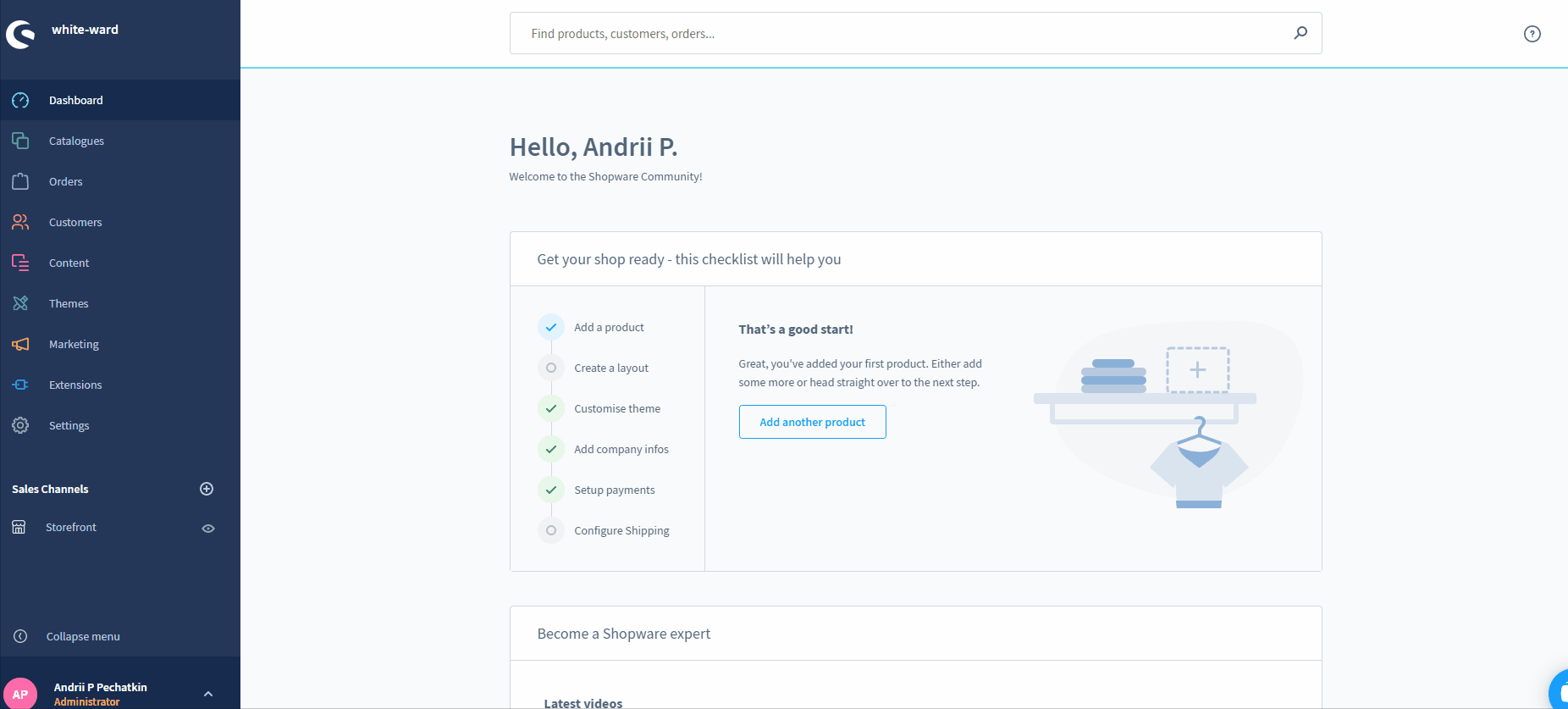
The corresponding grid lists scale units and the respective shorthands.
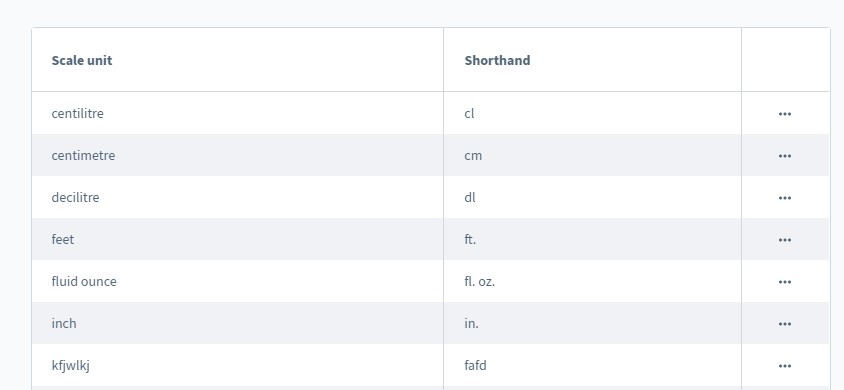
You can double-click on any row to edit a scale unit.
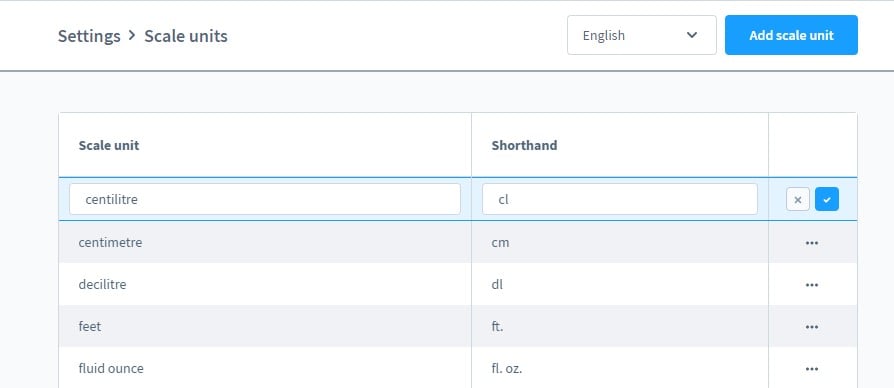
With the help of the context menu, it is possible to delete scale units from the grid.
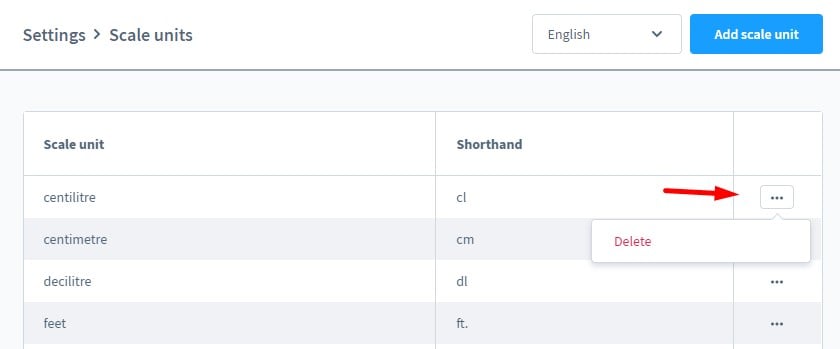
At the same time, it is possible to generate your custom units, such as bottles or pairs of shoes. Hit the Add Scale Unit button and provide a new scale unit and its shorthand.
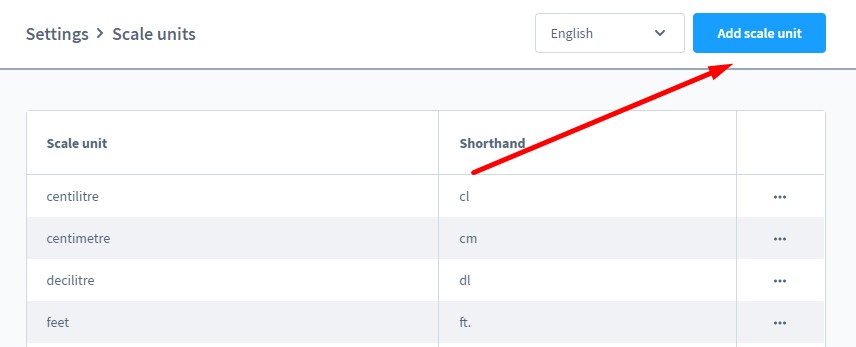
The corresponding fields appear below the grid.

Products
You can assign your new scale units to products in the administration. Go to the Products screen and select an item you want to edit. Choose the new unit in the drop-down menu under the Measures & Packaging section of the Specifications tab.
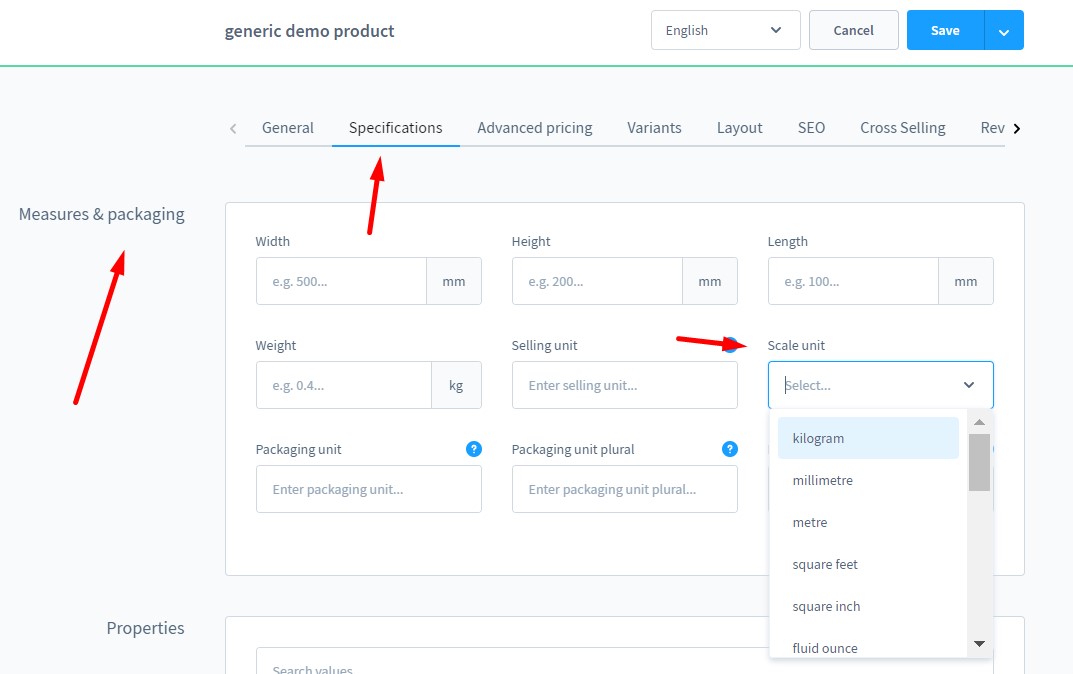
Storefront
On the storefront, units are displayed as follows.
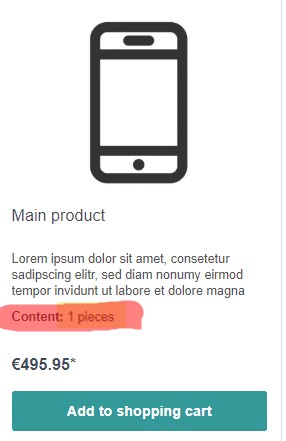
How to Import Scale Units to Shopware 6
It doesn’t seem that importing scale units to Shopware 6 makes any sense. However, you may transfer them as a part of product data. If you need to do that, you’ve come to the right place. With the help of our team, there is no need to recreate scale units manually. You can simplify and automate this process. Contact our support for more details and try our . You can use it to import any entity to Shopware 6, including scale units as a part of product information. The module provides the ability to transfer information about goods and services from any external system due to mapping schemes. If you configure them properly, the plugin transfers external data, updating it according to the requirements of Shopware 6. At the same time, it is possible to automate import and export processes with the help of schedules. So you can periodically update your product catalog with no interaction on the admin side.
Shopware 6 Scale Units FAQ
How to find scale units in Shopware 6?
You can find the scale units configuration screen under Settings -> Shop -> Scale Units.
How to add new scale units in Shopware 6?
Hit the Add Scale Unit button under Settings -> Shop -> Scale Units to create a new scale unit in Shopware 6. Next, provide the necessary information below the Scale Units grid.
How to edit scale units in Shopware 6?
Go to Settings -> Shop -> Scale Units and double-click on a record you want to edit.
How to delete scale units in Shopware 6?
Go to Settings -> Shop -> Scale Units and use the context menu to delete grid records.
How to assign scale units to products in Shopware 6?
You can assign scale units to products in Shopware 6 under the Measures & Packaging section of a detailed product view.
Shopware 6 Essentials FAQ
How to create a Shopware account?
If it is your first time with Shopware, go to the registration page to create a Shopware account. Hit the Register Now link and fill in the form. After receiving a confirmation email, follow the instructions provided in it.
What about a Shopware ID?
Don’t worry, you will get your Shopware ID during the registration automatically.
How to deal with Shopware master data and what is it?
Under this term, we usually combine all the information about your company provided to the system. Shopware 6 master data usually consists of physical addresses, phone numbers, emails, and other information added to the registration form.
How to add a new Shopware shop?
Your merchant area is a place where the appearance of a new Shopware 6 shop takes place. You need to click the corresponding link to activate the process. After that, choose the type of your new shop (a cloud storefront or an on-premise installation) and provide all the information the system requires.
How to add a payment method to your Shopware account?
In Shopware 6, an additional payment method is necessary for your internal purposes. Go to Basic Information -> Accounting and choose PayPal, credit card, or direct debit as a way to transfer funds to your account.
How to create a deposit in Shopware?
After an internal payment method is enabled, you can create a deposit to purchase extensions and themes for your Shopware 6 website. Go to your Merchant Area -> Shops and choose a shop to provide funds there. Click Open Account Details and transfer a deposit that covers the amount of your future purchase.
How to purchase Shopware extensions?
There are two ways to purchase extensions for your Shopware 6 website: Shopware Marketplace or Plugin Manager. No matter which one you choose, you need to create a deposit, select a tool you want to buy, and complete the checkout. As we’ve already mentioned, the deposit should be equal to the amount of your future purchase.
How to get support in Shopware?
Try the following email – financial.services@shopware.com if you have questions regarding accounting and financial services. Also, call +49 2555 9288 510 to discuss the same issues. If you want to ask about account or license issues, write to info@shopware.com or call +49 2555 9288 50.
How to automate import and export processes in Shopware 6?
You need a third-party tool to automate import and export processes associated with your e-commerce website. For instance, you may try the Improved Import & Export extension to manage recurring data transfers. Note that it requires no interaction on the admin side if you configure it properly. Create schedules to launch the corresponding import and export processes automatically, following the specified criteria.
How to migrate to Shopware 6?
The Improved Import & Export module helps you migrate to Shopware 6. You can move your existing website to the new platform no matter it is based on other e-commerce systems or Shopware’s previous versions. Since we also offer export solutions for systems like Magento and Shopify, you can simplify your data transfers between them and Shopware. Contact us for more information.
How to integrate Shopware 6 with external systems?
Use the Improved Import & Export extension to synchronize your Shopware 6 website with ERPs, CRMs, accounting tools, and other similar platforms. To run repetitive import and export processes, the module incorporates schedules along with mapping presets. The latter ones are used to modify data according to the requirements of your Shopware store during import as well as follow the rules of the connected platform during export. If the tool is properly configured, no interaction on the admin side is needed.



